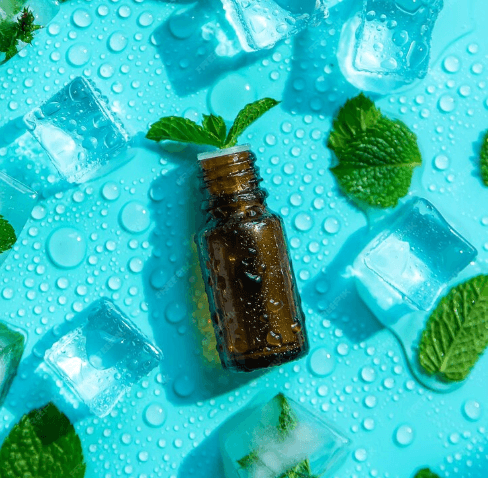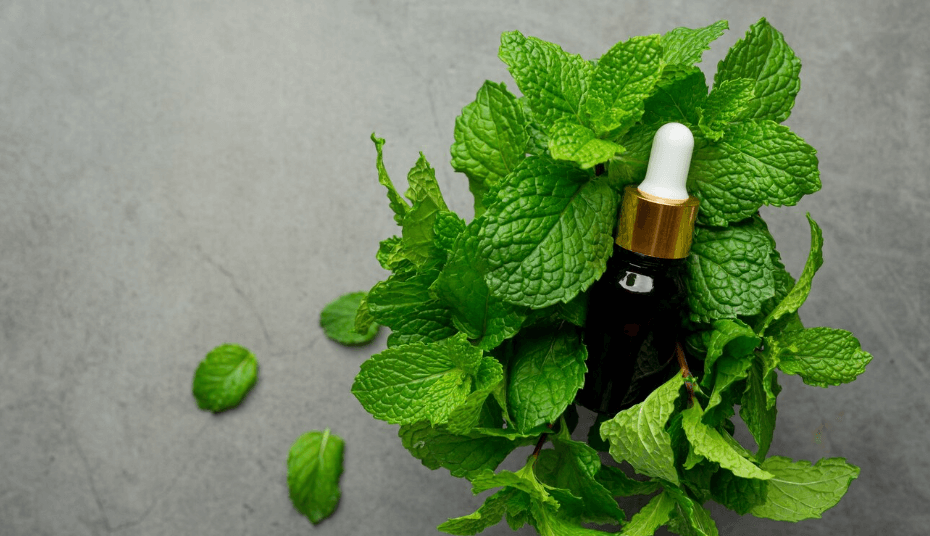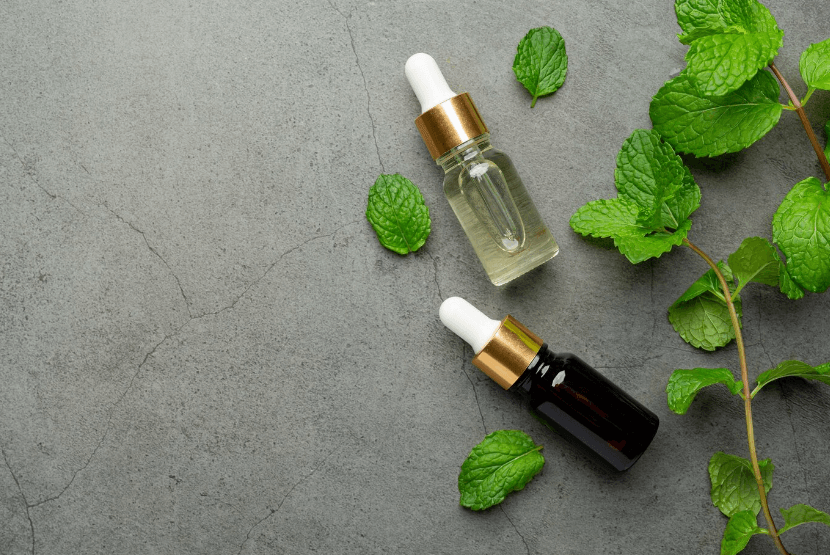We’ll explore the science behind peppermint oil’s potential to promote hair growth, address safety concerns, and help you find the “best” option for your unique hair journey. Let’s unveil the facts (and the refreshing minty tingle!) surrounding peppermint oil for hair growth and see if it can become your personalised secret weapon for achieving your hair growth goals.
Peppermint oil is a natural oil that comes from the peppermint plant.
Peppermint oil promotes faster, thicker, and healthier hair growth by stimulating blood flow, combating bacteria, reducing dandruff and hair loss, and moisturising the scalp.
Peppermint oil is used for hair development. It is combined with carrier oils like coconut and jojoba oil and massaged into the scalp. You can also mix a few dots into your shampoo or conditioner.
Try Rosemary oil for hair growth or peppermint oil for a stimulating scalp massage.
Peppermint oil stimulates the scalp, boosting blood flow and fostering the health of hair follicles. For more significant results, use Hibiscus Shampoo, which is high in vitamins and amino acids and helps to heal damaged hair while preventing breakage. Regular use of both can result in hair that is notably stronger, glossier, and thicker.
Peppermint oil for hair growth is generally safe, but you should perform a patch test to check for allergic reactions and avoid getting it in your eyes or mouth.
Why Peppermint Oil is Good for Your Hair
Do you want to have long, gorgeous, and healthy hair? Try peppermint oil if you do. Peppermint oil for hair growth is a naturally occurring oil derived from the peppermint plant. Peppermint oil offers many benefits for hair, such as:

How to Use Peppermint Oil for Hair Growth
If you want to use peppermint oil for hair growth, you must know how to use it properly. Here are some pointers and techniques you can use:
Peppermint oil is potent and concentrated. It would help if you did not use it directly on your scalp or hair. It would help to dilute it with carrier oil, a mild and gentle oil that can carry the peppermint oil. Carrier oils include coconut, jojoba, olive, or almond oils. You can massage your scalp with a few drops of peppermint oil and a tablespoon of carrier oil. Leave it on for 15-20 minutes before washing it off with shampoo and conditioner.
You can also incorporate peppermint oil into your Routine Shampoo or Conditioner to promote hair development. After adding two to three drops of peppermint oil, you can go ahead with a tablespoon of shampoo or conditioner. Your hair and scalp may benefit from this cleansing and revitalising.
You can also make your peppermint oil hair spray. Ten to fifteen drops of peppermint oil should be added to a water-filled spray bottle. Please give the bottle a good shake before misting your scalp and hair. This can help stimulate and invigorate your hair and scalp.
Peppermint oil combined with other natural components such as coconut or jojoba oil can provide additional benefits for hair development.
Peppermint oil, with its unique properties, holds potential benefits for hair health, which include:

Scientific Studies suggest that peppermint oil for hair growth may stimulate hair follicles, potentially resulting in thicker, fuller hair.
Although these advantages seem encouraging, further investigation is required to completely comprehend the impact of peppermint oil on human hair development. To prevent irritation, always use it diluted with a carrier oil. Before starting any new hair care routine, consult a medical practitioner.
Precautions and Side Effects of Peppermint Oil
Peppermint oil for hair growth is generally safe, but you should be aware of possible precautions and side effects. Here are some things to keep in mind:

See a trichologist or other medical expert if you are unsure or worried about taking peppermint oil for hair growth.
Conclusion
Enhance the health and growth of your hair with natural and efficient peppermint oil for hair growth. It has antimicrobial and antifungal properties, increases blood flow, and hydrates the scalp. Add peppermint oil to your shampoo or conditioner, blend it with a carrier oil, or use it to create a hair mist.
You should be careful and follow some precautions and side effects, such as doing a patch test, avoiding getting it in your eyes or mouth, and consulting your doctor if needed. Peppermint oil for hair growth can help you achieve your hair goals and feel more confident and beautiful.
FAQs about peppermint oil For Hair Growth
How often should I use peppermint oil on my hair?
According to some authorities, you can apply peppermint oil for hair growth up to three times a week. This could, however, change according to the type of hair and skin sensitivity. A patch test is usually advisable before topically diluting peppermint oil with carrier oil. Because peppermint oil is so strong, misusing it can result in burning or discomfort. Before using peppermint oil, speak with your doctor if you have any underlying medical concerns or are pregnant or nursing.
Can I leave peppermint oil on my hair overnight?
Peppermint oil for hair growth is safe to leave on your hair overnight. However, to avoid burning or irritation, applying it diluted with a carrier oil, like coconut or jojoba oil, would be beneficial. A patch test must be performed beforehand to rule out allergic responses. You can use the oil mixture to coat your hair before bed, then rinse it in the morning with shampoo and conditioner. This may help nourish and stimulate your scalp and hair.
Can I use peppermint oil for hair loss?
Peppermint oil for hair growth is a typical natural treatment for hair loss. Because menthol is a vasodilator, it may improve blood flow to hair follicles, preventing hair loss and even promoting growth. However, more research is necessary to understand its effects and usefulness, especially for humans.
When using peppermint oil to treat hair loss, conduct a patch test to rule out an allergic reaction and dilute the oil with a carrier to prevent irritation. As with any natural treatment, consult a healthcare provider before starting new hair loss therapies.Is there any scalp condition besides hair loss that peppermint oil can help with?
Indeed, peppermint oil’s antimicrobial qualities can aid in treating dandruff, irritation, and itching of the scalp and foster a generally better scalp environment favourable to hair development.
Can any hair be safely treated with peppermint oil?
Most hair types can safely use peppermint oil, but it’s essential to do a patch test first to ensure no allergic reactions or irritations before using it frequently.

